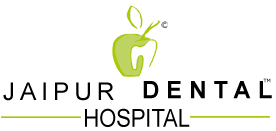Dental Care
Brushing and Flossing

- Always brush your teeth before bedtime, and after every meal if at all possible.
- Use toothpaste that contains fluoride to help prevent cavities.
- A soft head or medium head toothbrush are best; hard bristles can be too tough on teeth and cause irritation of the enamel.
- Flossing after brushing each time helps remove plaque from between the teeth, and helps with breath.
- Brush your tongue as well as your teeth to help eliminate mouth-borne bacteria.
- A mouthwash can help with oral health; mouthwashes with alcohol can dry out the mouth, so try to use brands that contain no alcohol.
- If you do not have toothpaste, baking soda and water works just as effectively as brand name toothpaste.
- Be sure to brush below the gum line as well as directly on the teeth.
- While brushing, the length of time it takes to brush should be no less than two minutes.
- Dental floss with mint flavoring can help to promote good breath.
Healthy Diet

- Avoid eating too much sugar and drinking sugary drinks such as soda, sweetened teas, or fruit juices.
- Nuts, dairy foods such as cheese, and meats are all good dietary choices that can help strengthen enamel because of the calcium and vitamins they provide.
- Foods like bananas and French fries are bad for the teeth, since these types of foods tend to stick to your teeth throughout the day.
- Chewing sugarless gum after a meal is a good way to substitute brushing in between meals; it can help remove food particles from between the teeth.
- Foods like onion and garlic can contribute to bad breath. If you do eat these types of foods, try to brush your teeth as soon as possible afterward.
- Snacking between meals should be limited. If you choose to snack, try to eat healthy foods without sugar.
- Acidic foods and drink such as oranges or orange juice can promote tooth decay and enamel wear. If you do consume acidic foods, be sure to brush your teeth afterwards.
- Vitamin deficiency can cause tooth decay and oral disease. Make sure you are getting enough essential vitamins such as the B vitamins, calcium, and other much needed essentials.
- Fresh fruits like apples can be good for your teeth because they can help remove loose foods and clean the surface of your teeth.
- The average adult should get a minimum of 500 milligrams of calcium per day to ensure healthy, strong teeth.
Long-Term Dental Care

- Getting regular teeth cleanings and checkups at the dentist every six months is recommended.
- Replace your toothbrush every two months to ensure proper cleaning. Keep brushes free from germs.
- A sealant can be applied to the teeth by an oral health professional, which will help protect enamel and keep teeth looking their best.
- Braces can sometimes be recommended by an orthodontist to help teeth grow straight. Sometimes, adults can wear braces to help the appearance of their teeth.
- If you have a toothache, it is important to seek dental care immediately as this could be a potential infection or abscess tooth.
- Children as young as six months old should begin visiting a dentist regularly to check for any potential problems and begin a lifetime of healthy oral care.
- Those with heart valve problems or a compromised immune system should always take antibiotics before any dental work is performed.
- Avoid chewing tobacco or smoking to help ensure gum, mouth, and teeth health for life.
- Good long term dental care can prevent excess dentist visits, cavities, yellowing teeth, and bad breath.
- Always communicate any changes in tooth sensitivity, tastes in your mouth, or other issues with your dentist so they can help assess potential problems.


